🌏 Frontier Markets News, October 15th 2023
A weekly review of key news from global growth markets

Welcome to the latest edition of Frontier Markets News. As always, we would love to hear from you at hello@frontiermarkets.co with news ideas, feedback and anything else you find interesting.
Sent this by a friend? Sign up here to receive FMN in your inbox every weekend.
By Ken Stibler, Noah Berman and Nojan Rostami. Executive editor: Dan Keeler
Africa
US to suspend aid for Niger
Three months after Niger’s military overthrew the government the US State Department has officially declared the action to be a coup. Congress rules mean the US must now halt all remaining economic and military aid to Niger until democracy is restored.
In total, more than $600 million in aid will be suspended, the New York Times reports.
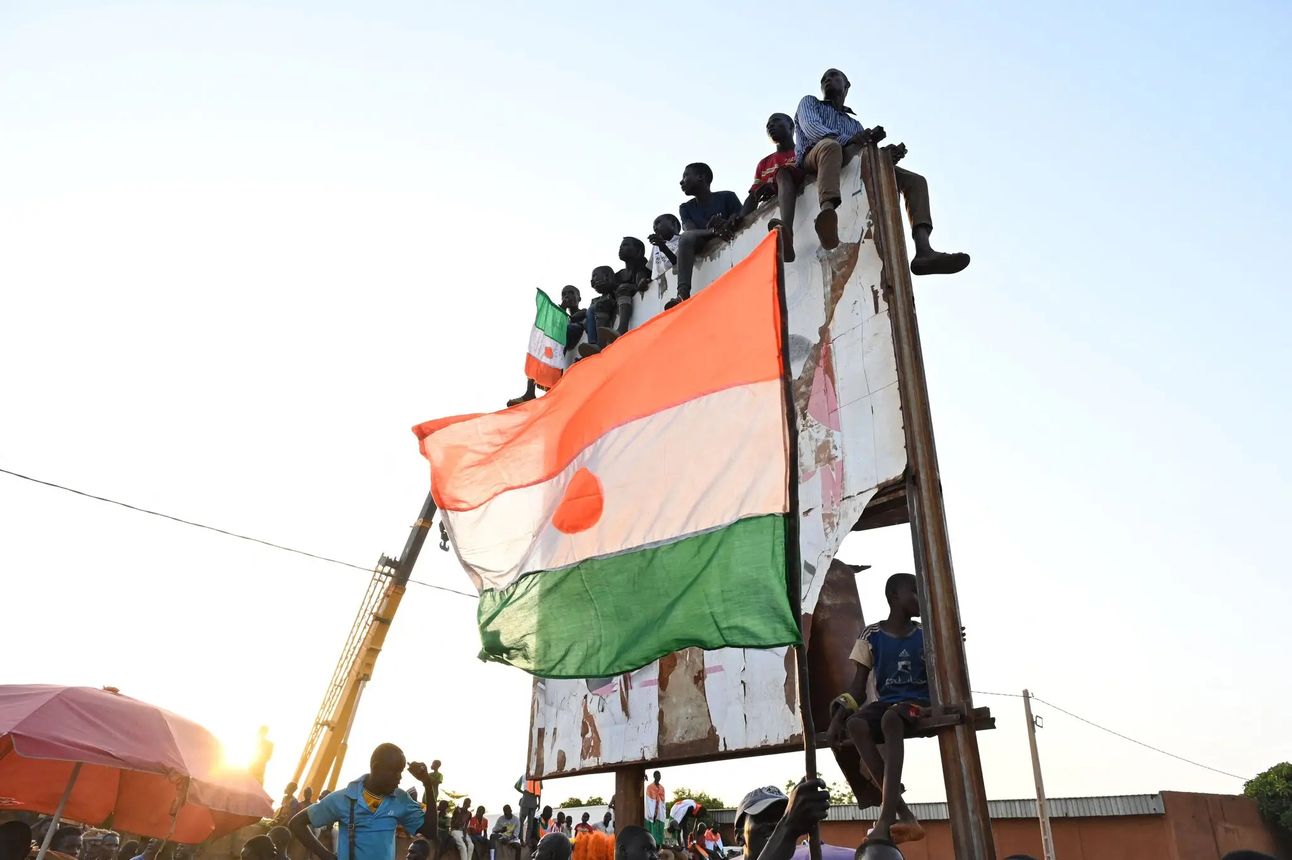
In a statement announcing the decision State Department spokesman Matthew Miller said humanitarian, food and health assistance will continue. US military and diplomatic personnel will also remain in the country amid an uptick in jihadist attacks. Last week, militants killed 29 Nigerien soldiers near the border with Mali, BBC reports.
IMF and World Bank face criticism at Africa-based meetings
Morocco played host to the IMF and World Bank annual meetings this week, the first time in more than half a century that the meetings have been held in Africa. The event came as the lenders are facing growing criticism that they do too little for frontier economies, and that some policies, such as those that require governments to choose debt service over critical needs of their populations, are harmful.
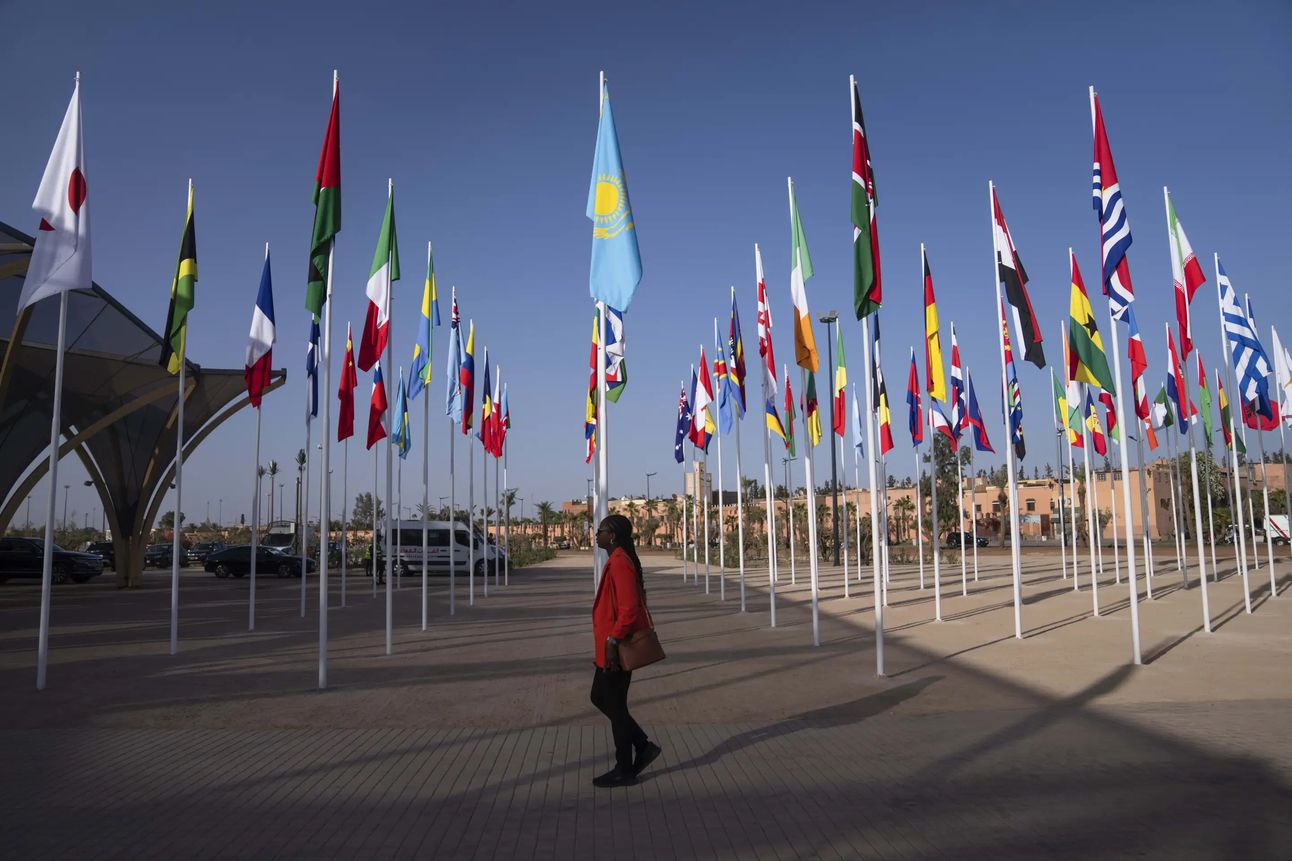
“Emerging market and developing economies have been especially hard hit,” IMF Managing Director Kristalina Georgieva, World Bank President Ajay Banga, and two Moroccan officials said in a joint statement at the summit. Countries “need to stand together, united in the goal of protecting our future prosperity and ending extreme poverty,” they said.
Some leaders of small countries have called for a complete overhaul of the institutions. The tension is particularly pronounced in Africa, where many countries spend more to service their debt than on health care and education combined, AP reports.
Asia
Sri Lanka reaches debt deal with China
Sri Lanka has reached a preliminary restructuring agreement over some $4.2 billion it owes to the Export-Import Bank of China, the FT reports.
The announcement of the deal came ahead of similar debt talks between Sri Lanka, the IMF, and the so-called Paris Club group of lenders in Morocco this week, and could mark a significant step forward in Sri Lanka’s restructuring efforts. The island nation owes 40% of its bilateral debt to China, according to the IMF.
Bloomberg reported that the IMF was unaware the deal with the Chinese lender was imminent.
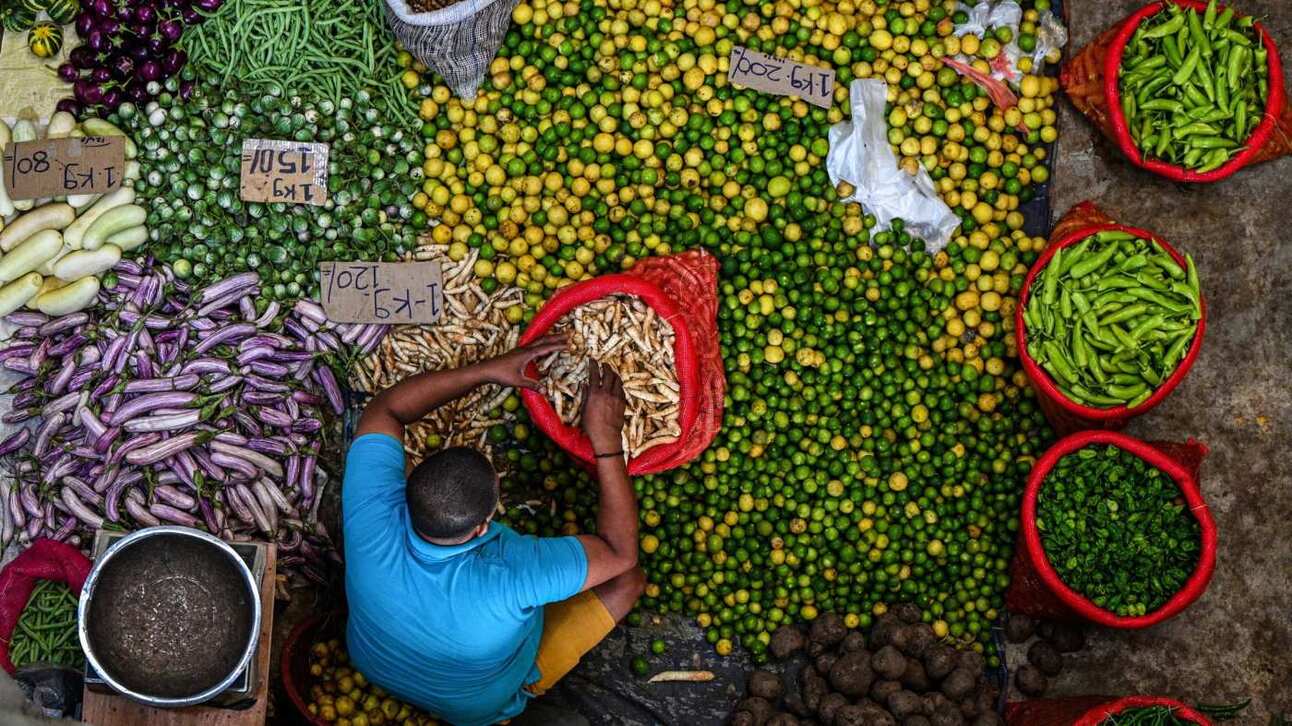
Reaching a restructuring deal with external creditors is a condition of the country’s $3 billion bailout program with the international lender. Progress has been rocky, though: Last month, Sri Lanka failed an IMF review, leading the lender to freeze a $330 million disbursement.
Myanmar’s military attacks refugee camp
Myanmar’s military killed 29 people at a refugee camp near the border with China on Monday, a rebel group said, in one of the most lethal assaults on civilians since the military took power in a coup in February 2021, Reuters reports.
A colonel in the Kachin Independence Army, an ethnic rebel group, called the attack an “act of genocide,” which killed 11 children, including six under the age of 12, the New York Times reports. A spokesman for Myanmar’s military denied that it was responsible for the strike.
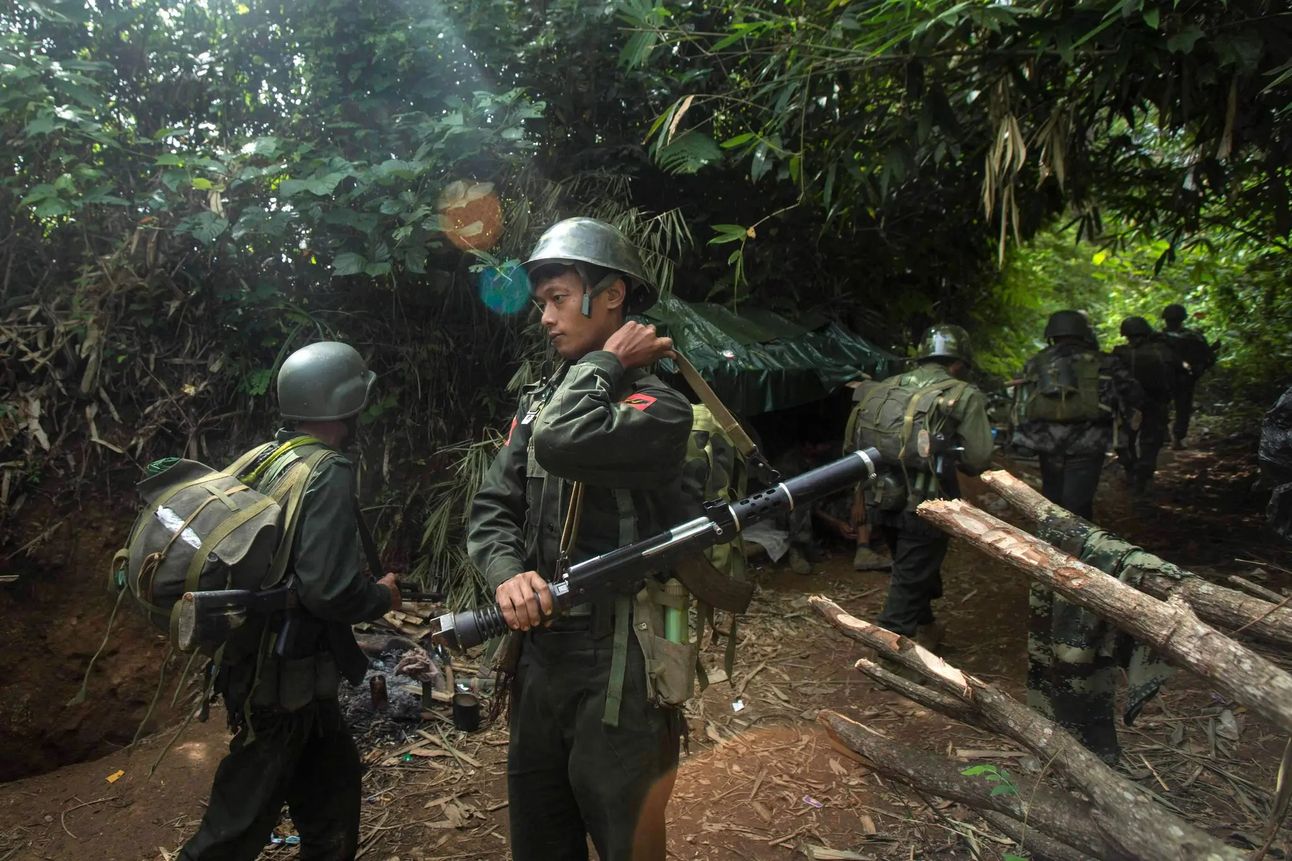
Fighting between the military and the rebel groups opposing it has intensified over the past six months. The military has made civilians a frequent target of its barrages, killing 4,143 since the coup began, according to the Assistance Association for Political Prisoners.
Goldman Sachs sues Malaysia
The investment bank Goldman Sachs announced that it had filed for arbitration against the government of Malaysia on Thursday over disputed payments related to the 1MDB corruption scandal.
In 2020, Goldman Sachs agreed to pay Malaysia $2.5 billion for its role in the scandal involving the state-run Malaysian investment fund, one of the largest financial crimes in history. In its agreement with the country, the bank also guaranteed that it would recover $500 million by August 2022, or else face a $250 million penalty. The two parties are now in dispute over whether the money has been recovered, FT reports.

US and Malaysian officials say that $4.5 billion was stolen from 1MDB in 2018 to finance luxury goods for powerful elites including former Malaysian Prime Minister Najib Razak, who has since been found guilty of corruption. Goldman Sachs underwrote bonds that raised billions for the fund. The bank has denied wrongdoing, but two of its bankers have been charged with violating money-laundering and bribery laws, Al Jazeera reports.
Middle East
Iran salutes Hamas surprise attack on Israel but denies involvement
Iran’s head of state Ayatollah Ali Khamenei praised Hamas for its surprise attack on Israel last Saturday, calling it an “irreparable military and intelligence defeat,” but denied direct Iranian involvement, Reuters reports. Khamenei also warned that Israel’s war against Gaza would “unleash a much heavier torrent of anger,” underscoring other governments’ concerns that the conflict between Israel and Palestine could erupt into a wider regional war.
US Secretary of State Antony Blinken says the US believes Iran is “complicit” in the attack given its “long relationship with Hamas,” but sees no “direct evidence that Iran was involved in the attack, either in planning it or carrying it out.” Nonetheless, the US has reportedly convinced Qatar to block the unfreezing of some $6 billion in Iranian oil revenues, which the US agreed to release last month as part of a prisoner exchange, The Guardian reports.
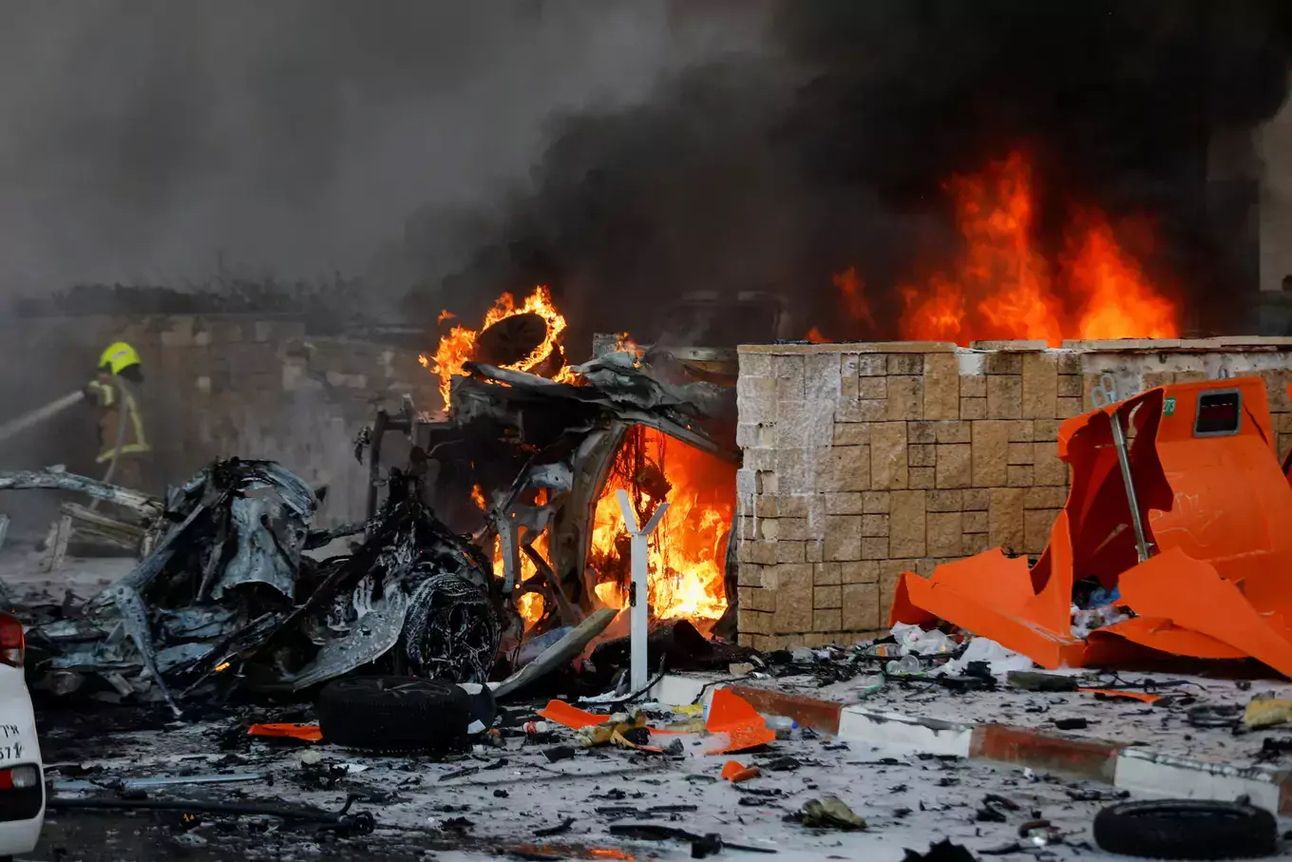
Despite US warnings not to get involved in the conflict, Iran’s Foreign Minister Hossein Amirabdollahian embarked on a tour of Iraq, Syria, and Lebanon—where Iran has significant allied armed forces and proxies—stating that its allies are “fully ready” to respond to Israel. However, the US Defense Secretary Lloyd Austin reports this weekend that ‘there’s no evidence‘ that Hezbollah or other Iranian proxies are preparing for a wider regional war.
Syria orders expulsion of Houthi diplomatic mission
Syria’s foreign ministry expelled the Houthi diplomatic mission from the country this week, and returned ownership of Yemen’s embassy in Damascus to the internationally-recognized government. The expulsion followed a request arising out of a meeting between Syrian, Saudi Arabian and Yemeni officials sponsored by Egypt, according to a spokesperson for Yemen’s government.
The Yemeni embassy in Damascus was occupied by the Houthis—an Iran-backed group that seized power in Yemen from the Saudi-backed government—shortly after their successful coup in September 2014. Though the Houthis are not an internationally recognized government, the Syrian government of President Bashar al-Assad is also a long-time ally of Iran, making this decision to side with a government backed by Iran’s regional rival Saudi Arabia an interesting one.
Europe
Poland faces uncertain future after election
Poles headed to the polls today for a high-stakes election that could alter the balance of power in the EU and influence the future course of Russia’s war on Ukraine, CNN reports. The election also raises significant questions over how the next government will tackle Poland’s medium-term fiscal challenges, which have become more pronounced due to a trend of fiscal loosening seen in recent budgets.
The 2024 budget, finalized last month, maintains a deficit target of 4.5% of GDP for the coming year, a more optimistic projection than Fitch’s 2023 forecast of 5.3%. However, the budget showcases mounting spending pressures, with a notable increase in defense spending, rising public-sector wages, and additional social transfers.
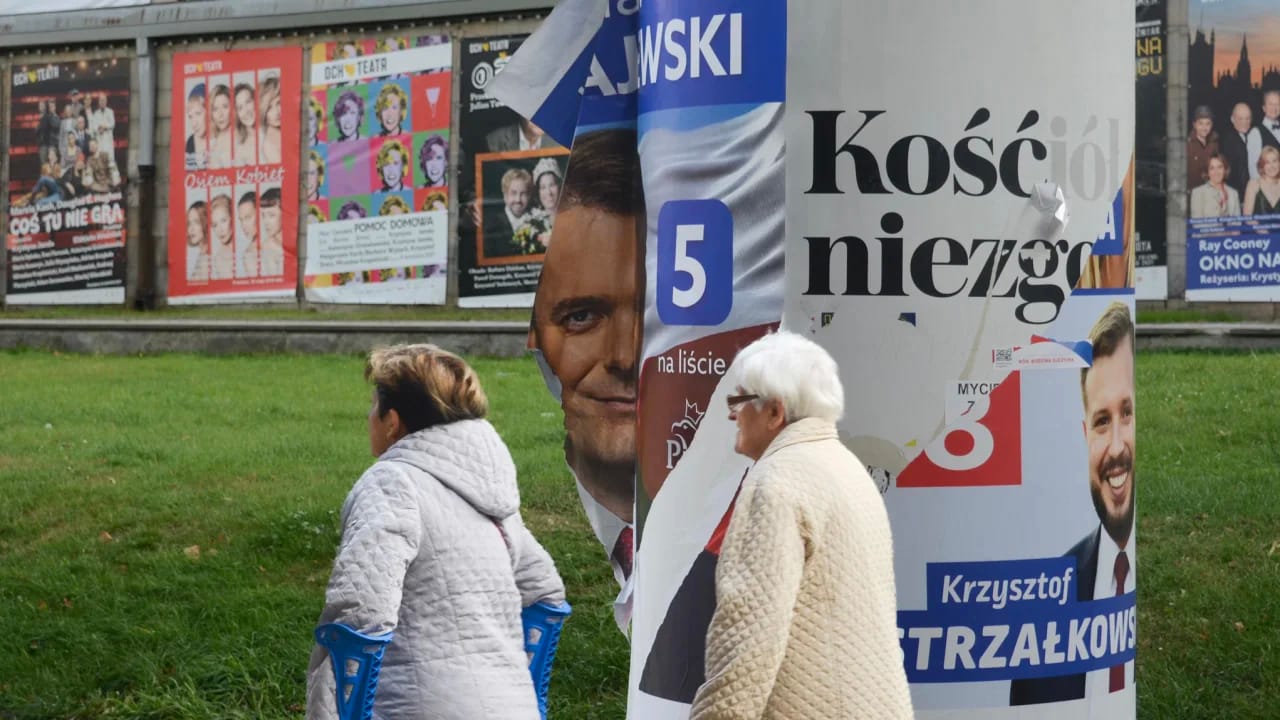
Heading into the election, various political parties promised to expand social spending and sustain high defense outlays, potentially adding to pressure on long-term public debt. In the wake of the election, Poland’s fiscal trade-offs could affect relations with the EU and play a pivotal role in shaping the country’s economic outlook and fiscal health.
Ruble climbs after Russia reintroduces capital controls
The Russian ruble staged a recovery against the US dollar following Moscow’s implementation of capital controls, with President Vladimir Putin decreeing that 43 major exporters, including significant commodity producers, must exchange foreign currency from overseas sales for rubles in the local market, the WSJ reports. This move aims to arrest the ruble’s sharp depreciation, driven by mounting war costs and declining export earnings.
The ruble strengthened by approximately 3%, trading at just under 96 rubles per US dollar, after recently hitting its weakest levels since the early days of the war.
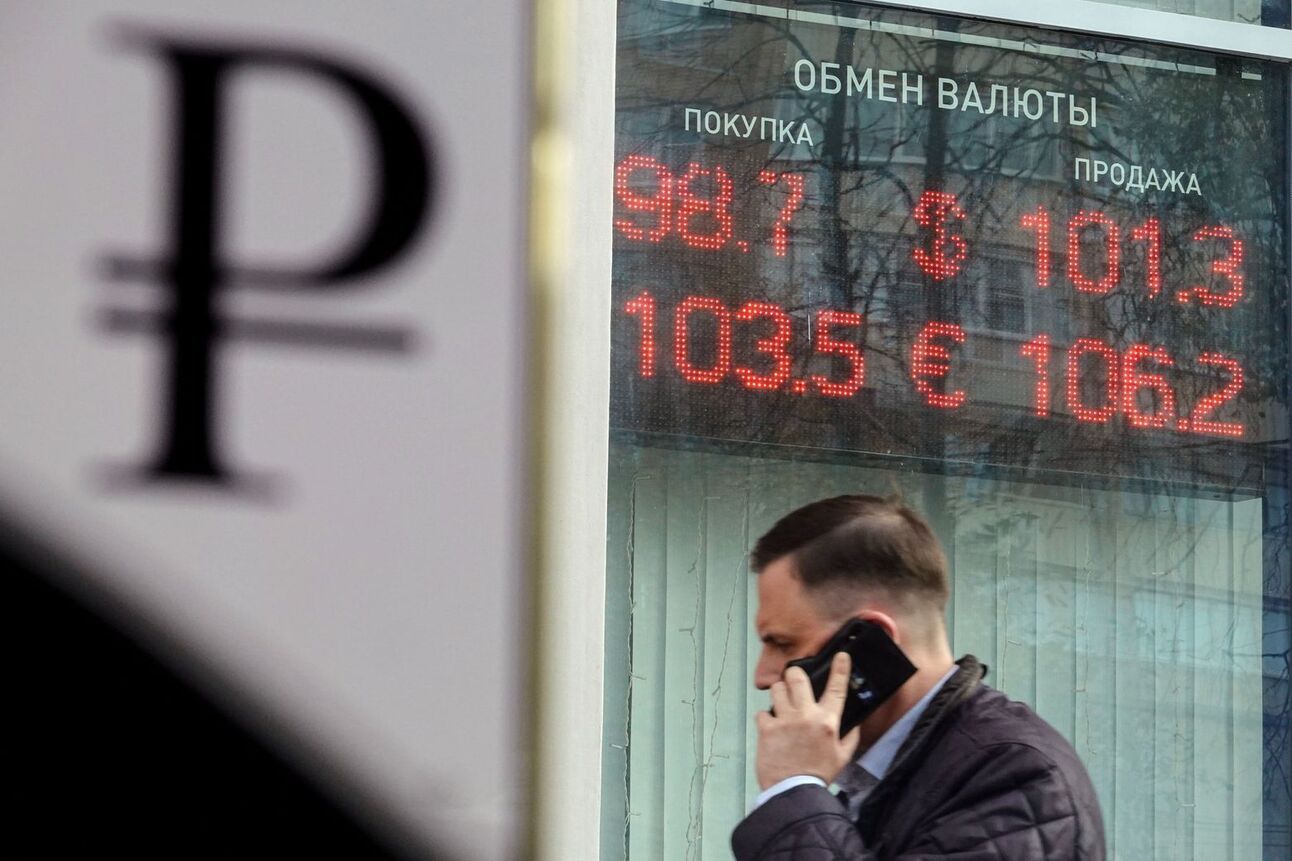
The weakening ruble has raised concerns in Moscow due to its impact on import costs and inflation. Inflation hit 6% for the 12 months through September, exceeding expectations and prompting economists to anticipate another interest rate increase when central bank officials convene later this month.
Kosovo halts energy payments for Serb-dominated north
Kosovo’s decision to stop allocating funds for electricity used in the Serb-majority north of the country has escalated tensions between Kosovo and Serbia. Kosovo’s Minister of Economy, Artane Rizvanolli, said payments from the Kosovo budget would continue only until the deadline for implementing energy agreements signed with Serbia in June 2022.
Serbs in the northern Kosovo municipalities have not paid for their electricity for over two decades, resulting in significant costs for the Kosovo government. Kosovo’s decision to halt further funding has the potential to heighten tensions, and the lack of resolution in the energy agreements raises questions about the region’s economic and political stability.
Latin America
Dominican Republic reopens border for trade with Haiti
The Dominican Republic is set to partially reopen its border with Haiti, which it closed amid a dispute over the construction of a canal on the Haitian side of the border that draws water from a shared river. Haitians will remain banned from entering the country indefinitely, however, and measures such as the suspension of visa issuance for Haitian citizens and a ban on exporting electronics and construction materials have also been extended.
The decision comes after weeks of international calls for the two nations to resolve the dispute as well as requests for the Dominican Republic to allow humanitarian aid to cross the border into Haiti.
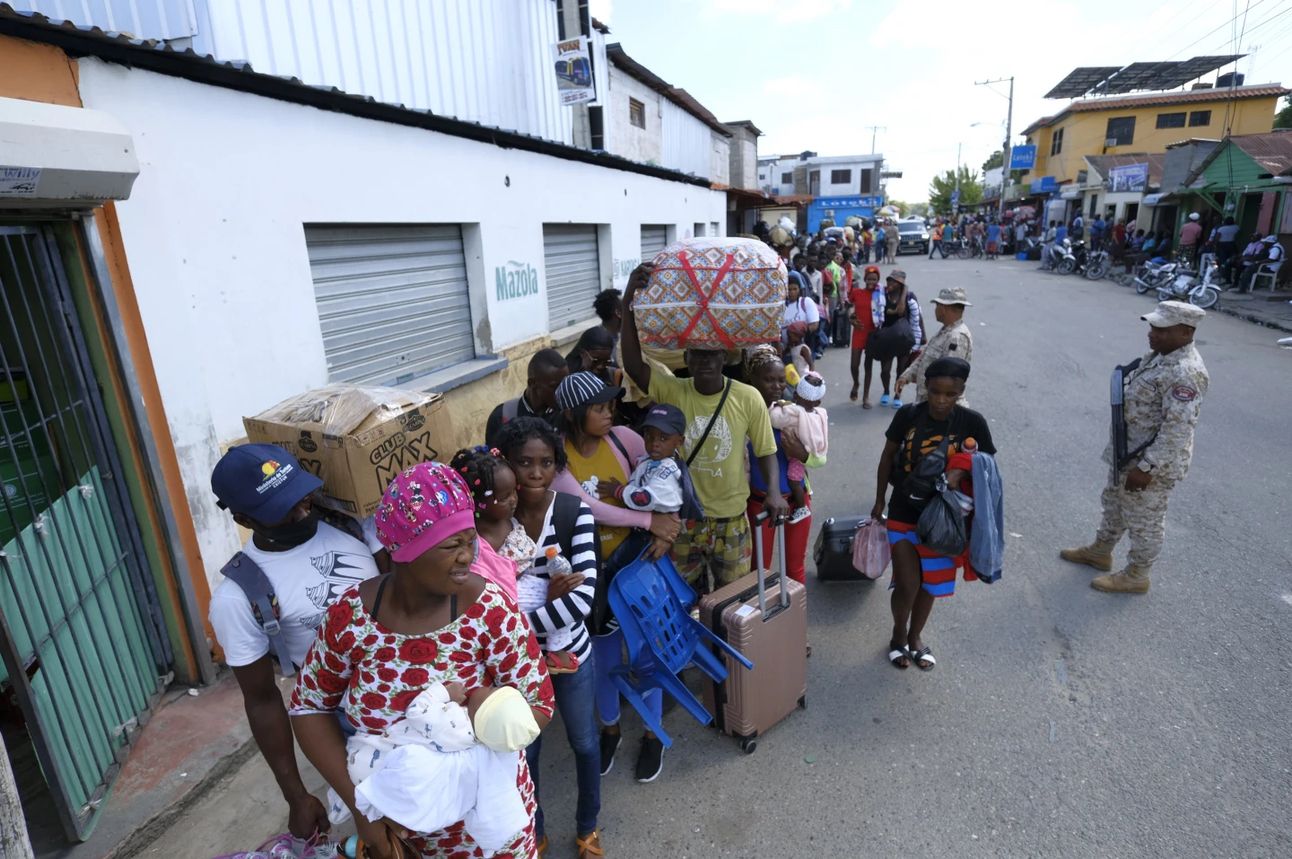
While the Dominican government of President Luis Abinader has characterized the border closure as a means to protect national security and the environment, Dominican businesses and factory owners have complained it is having a severe economic impact. The country’s National Security Council maintains that the border closure has been effective in curbing the flow of undocumented migrants and keeping out Haitian gangs.
Venezuela moves closer to deal with US over sanctions relief
The US and Venezuela are on the cusp of a landmark agreement that could result in a broader sanctions relief in exchange for Venezuela’s commitment to holding fair elections in the near future, Bloomberg reports. Under the deal, the US could ease oil and banking sanctions once Venezuela takes concrete steps to ensure a more democratic presidential election, including permitting opposition candidates to participate.
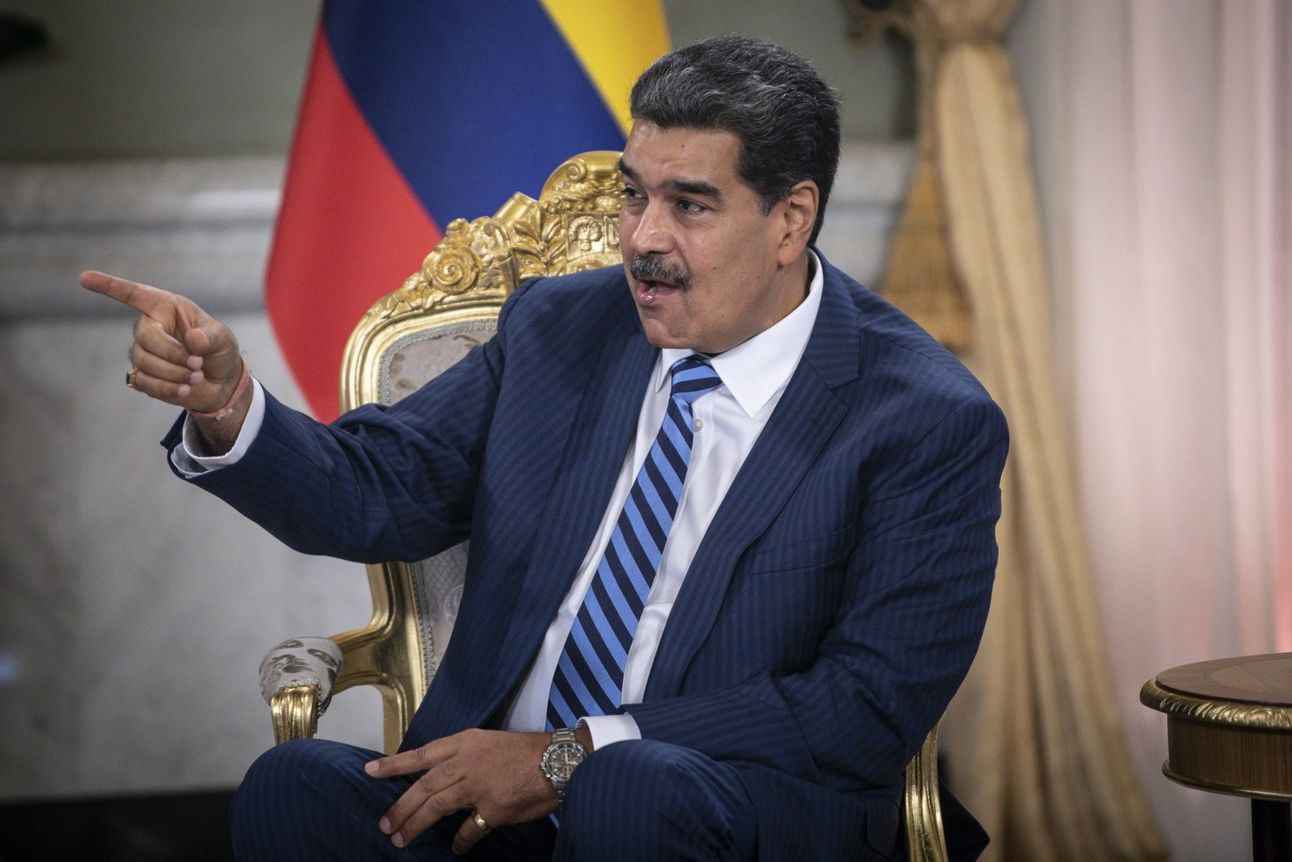
The sanctions relief could extend to Venezuela’s central bank and state-owned development bank, potentially facilitating the recovery of approximately $3 billion held in European accounts.
If successful, the arrangement would represent a significant shift in US-Venezuela relations and could alleviate Venezuela’s economic woes, providing valuable financial support to President Nicolas Maduro ahead of the 2024 election.
Global
Dollar rally could undermine strong EM performance
The IMF this week warned that emerging markets’ strong performance this year might be jeopardized if advanced economies maintain higher interest rates for an extended period. In its Financial Stability Report, the IMF pointed out that recent pullbacks in some emerging-market currencies suggest a potential return to choppier conditions in the coming quarters.
- IMF projects likely soft landing for ‘stable and slow’ global economy (Investopedia)
While emerging markets have seen strong currency gains on the back of higher interest rates, many of them may have reached a natural peak in their tightening cycle, especially those where borrowing costs are expected to decrease rapidly.
The IMF urged central banks—particularly in low-income countries struggling with high borrowing costs and difficulties servicing debt denominated in hard currencies—to carefully manage their easing cycles.
What We’re Reading
Gambia plans first stock exchange to widen companies’ funding options (Bloomberg)
Nigeria reforms underpin stronger economic growth, IMF says (Bloomberg)
Tanzania targets 10-fold increase in Indian investment by 2025 (Bloomberg)
Zambia ‘poised to sign’ debt restructuring MoU (Reuters)
Iran and Sudan agree to resume diplomatic relations (Reuters)
Mauritius’ economic planners target Africa (The Africa Report)
Tunisia returns €60 million in EU aid as migration spat simmers (Bloomberg)
US and EU to support African railway development to counter China (Nikkei)
Myanmar steps up corruption crackdown amid economic pressure (Nikkei)
Vietnam ‘tried to hack US officials and CNN’ with posts on X (Washington Post)
Indonesia seeks to lead island nations at Dubai climate summit (Nikkei)
Indonesia launches palm oil exchange to rival Malaysia benchmark (Nikkei)
Chinese travelers’ slow return hits Southeast Asian economies (Nikkei)
China vows Belt and Road ramp up despite debt-trap criticism (Nikkei)
Mongolia opens way for uranium mining with $1.7bn French deal (Nikkei)
Pakistan adopts careful tone on Israel, experts read between lines (Nikkei)
Thousands of Turkmen leave Turkey amid renewed pressure as some eye move to Russia (Radio Free Europe)
Turkey pushes US to cut ties with Kurdish militants in Syria (BalkanInsight)
Turkey ‘destroying NE Syria oil, power facilities’ (Al Monitor)
Saudi Arabia ‘probes alleged abuses’ at Amazon warehouses (The Economic Times)
Saudi Arabia working to improve regulation, financial support for S. Korean projects: investment minister (The Korea Times)
Saudis put Israel normalization on hold in blow to US goals (Bloomberg)
UN says tens of thousands have fled south in Gaza after Israel’s evacuation order (The Guardian)
Israel’s central bank sells $30 billion in foreign reserves after shekel slides to seven-year low (CNBC)
Jordan disperses pro-Palestinian protesters heading to border with West Bank (Reuters)
Reuters journalist dead, AFP reporters among 6 wounded in south Lebanon (France 24)
Ukraine’s Zelenskiy seemingly snubbed by Romanian parliament (Radio Free Europe)
Serbia’s Vucic denounces opposition calls for EU to sanction hm (BalkanInsight)
Estonia ready to lose funding if Ukraine joins EU, prime minister says (FT)
Russia’s Putin arrives in Kyrgyzstan on first trip abroad since ICC arrest warrant (France24)
Argentine president files complaint against Milei before vote (Bloomberg)
All of Argentina’s dollar exchange rates, explained (Buenos Aires Herald)
Guatemala’s Arevalo says state is using violence to counter protests (Reuters)
Kenya’s high court blocks deployment of forces to Haiti until it can hear challenge (Miami Herald)
Costa Rica and Honduras impose reciprocal visa requirements after Costa Rican ‘safety’ concerns (Reuters)
Voting begins in Ecuador’s presidential runoff election (DW)
Ecuador presidential hopefuls pledge action on ports, where bananas hide cocaine (Reuters)
The fintech boom in Latin America (Mercopress)
Venture fund has $1b ready for Latin America tech rebound (Bloomberg)






